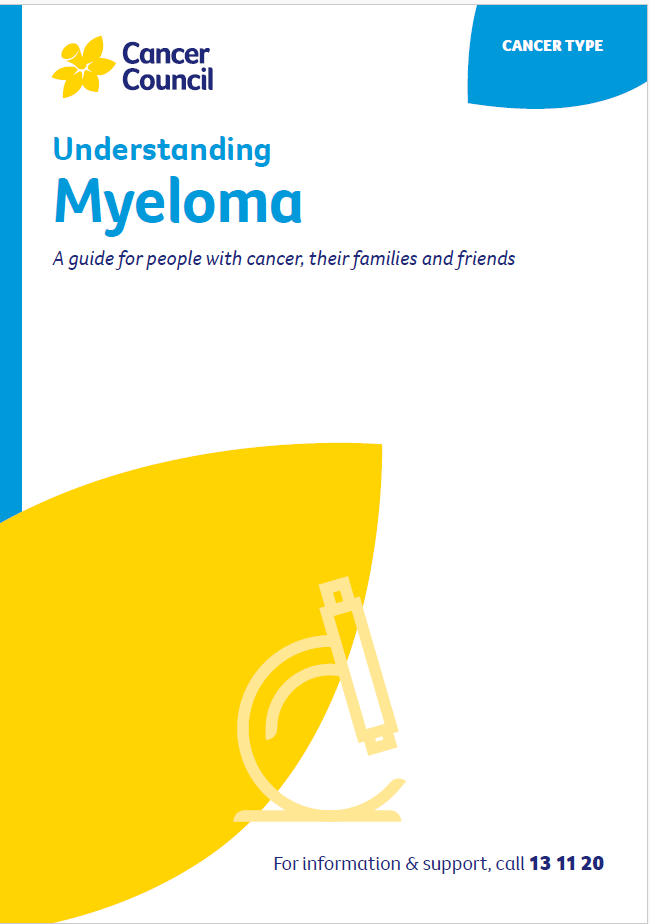Bone marrow aspiration and trephine biopsy
These tests are used to examine cells from the bone marrow. They look for an increased number of plasma cells as well as abnormal plasma cells. You will usually have a local anaesthetic and a mild sedative.
Learn more about:
Bone marrow aspiration and trephine biopsy
For the bone marrow aspiration, a thin needle is used to remove a sample of fluid (aspirate) from the bone marrow – usually from the pelvic bone, but sometimes from the chest. A trephine biopsy, sometimes done with a second needle, removes a small piece of bone with the marrow inside.
The bone marrow samples are sent to a laboratory for examination under a microscope. A medical specialist, called a pathologist, will check the number of plasma cells in the sample and look for any damage to the bone marrow caused by myeloma.
You may also have a bone marrow aspiration and trephine biopsy at the start and end of each course of treatment. By comparing samples, your doctor can see how well the treatment is working.
After a biopsy, you may feel drowsy and have some bleeding and discomfort at the biopsy site. It is a good idea to have someone drive you home after this test.
Genetic tests
Each cell in the body contains chromosomes, which are threadlike structures that hold sets of instructions known as genes. Every kind of cancer, including blood cancer, changes the genes of the affected cells. These gene faults are not the same thing as genes passed through families. The fault is only in the myeloma cells.
Genetic tests, such as fluorescence in situ hybridisation (FISH) and next generation sequencing analysis, look for abnormal chromosomes or genes in the blood or bone marrow.
There may be changes in the structure of the chromosomes within myeloma cells. Sometimes part of the chromosome breaks off or goes missing (deletion), or reattaches to another chromosome (translocation).
This information is used by your medical team to help guide treatment choices. Some specific chromosomal abnormalities are related to a higher-risk myeloma. Talk to your doctor about whether these tests are likely to be of use in your situation.
Podcast: Tests and Cancer
Listen to more of our podcast for people affected by cancer
More resources
Dr Ian Bilmon, Haematologist, Westmead Hospital and The Sydney Adventist Hospital (Clinical review); Martin Boling, Consumer; Catherine Bowley, Specialist Myeloma Nurse, Myeloma Australia; Dr Samuel Dickson, Radiation Oncologist, Calvary Mater Newcastle; Rachelle Frith, Clinical Nurse Consultant, Haematology, Prince of Wales Hospital; Dr Wojt Janowski, Haematologist, Calvary Mater Newcastle; Yvonne King, 13 11 20 Consultant, Cancer Council NSW. We would like to thank all the health professionals, consumers and editorial teams who have worked on current and past editions of this title.
View the Cancer Council NSW editorial policy.
View all publications or call 13 11 20 for free printed copies.

